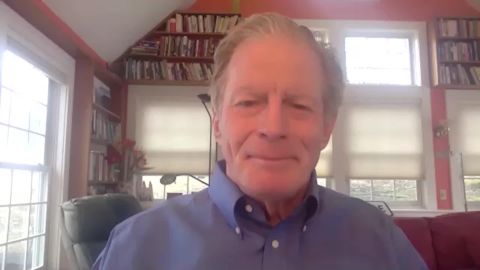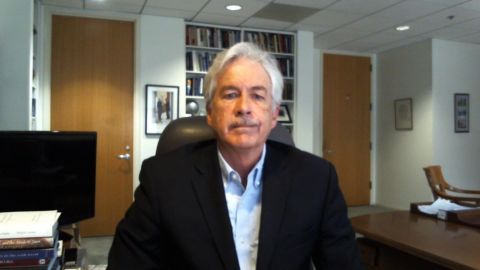Read Transcript EXPAND
ORNA GURALNIK, CLINICAL PSYCHOLOGIST, “COUPLES THERAPY”: You know, I was listening to the earlier part of what this program is and to your talking about large-scale politics, but these large-scale politics live inside the tiniest and most intimate of spaces, which is how do we live with otherness? How do we create a certain kind of mini political system where both ways can survive and get what they need? Can the relationship actually provide a system, a holding environment, where different needs are being met? And that is the big challenge and it’s always a challenge. And under this kind of situations of extreme stress it will really come to the surface.
CHRISTIANE AMANPOUR: So, Eric, let me can you, because I just will read you a few statistics, because all this also begs the question, what happens? And cases of domestic violence and child abuse may be rising. The U.N. is warning that domestic violence cases are surging. In Hubei province, which was the epicenter, they said that domestic violence reports to police more than tripled in one county during the lockdown in February. And some countries, France, Spain, others, they have had to sort of agree that women who feel threatened, for instance, and in danger are able to come out of isolation and try to seek help. They have given them special codes to try to sound the alarm to get away from potentially their abusive partner. And there’s been a domestic violence murder in Spain. Just describe, you know, what this might mean for very many women and children around the world right now?
ERIC KLINENBERG, AUTHOR, “PALACES FOR THE PEOPLE”: Well, this is an issue of tremendous concern, of course. And let’s face it. Women who are the victims of domestic abuse and children who are the victims of domestic abuse feel trapped in ordinary times. It is all the more difficult to find a way to get out at a moment like this. And what compounds the situation is that it’s in moments of high stress, of high tension, when men start to lose income, lose jobs, lose control, lose their sense that things are stable, that they become more likely to act out aggressively and violently towards the people around them. And so I think we have every reason to be worried about a spike in cases of domestic violence. And the fact is, around the world, places that are open and accessible, safe spaces for women and for children, are crucial at providing a release from situations like this. If there’s a gathering place where you can get companionship and social support, and seek attention and care, that significantly increases your capacity to deal with a violent situation at home. And, of course, that is exactly what is shutting down around the world right now.
About This Episode EXPAND
Christiane speaks with former Deputy Secretary of State William J. Burns, who says this pandemic be an opportunity to restore democratic leadership. She also speaks with a sociologist and the host of “Couples Therapy” about the consequences a quarantine has on those affected by domestic violence. Michel Martin speaks with Republican strategist Stuart Stevens about his denouncement of the Party.
LEARN MORE


